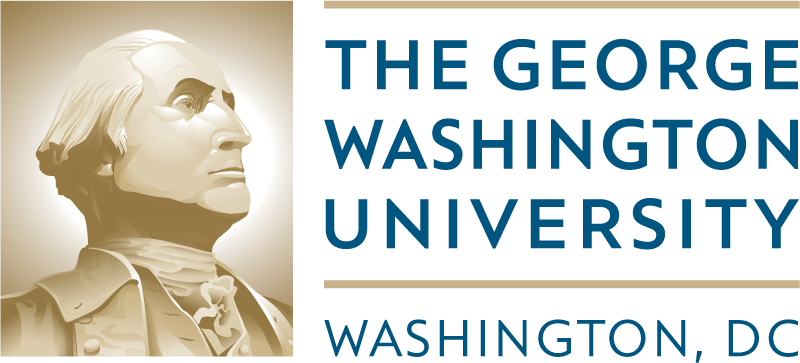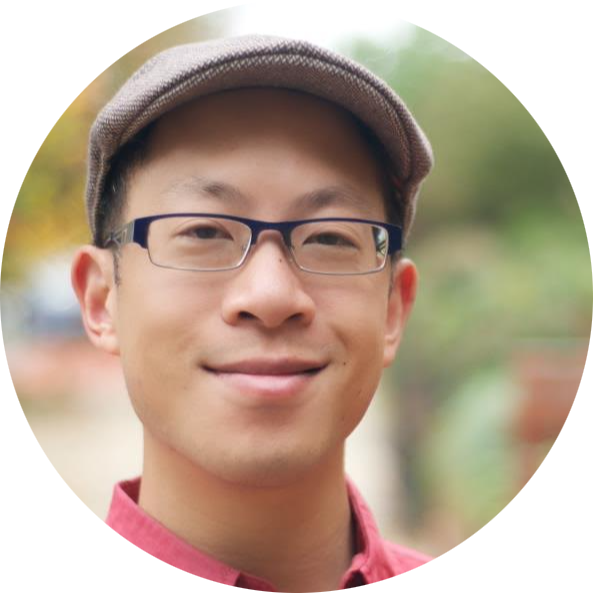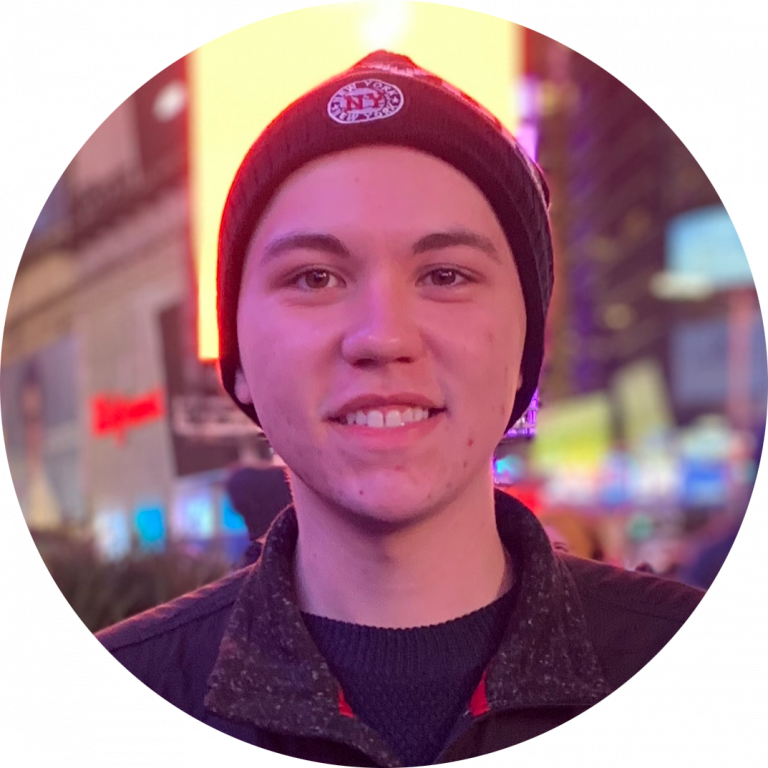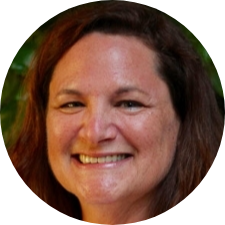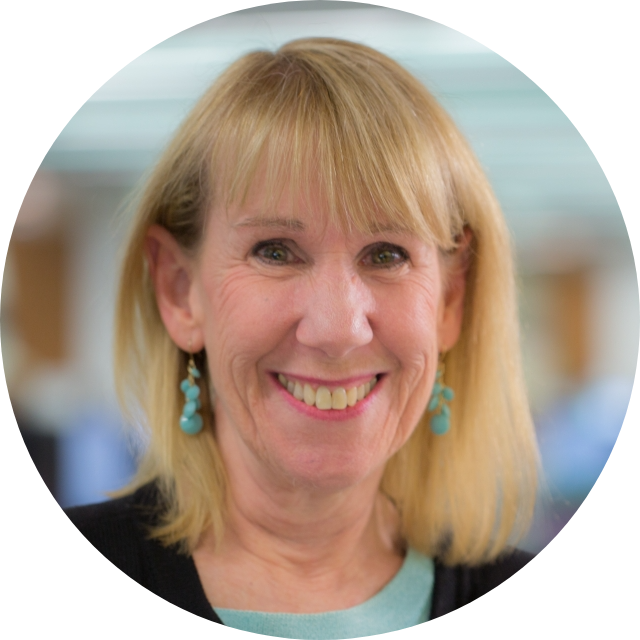VISION
The GW Digital Humanities Institute is a hub of research, teaching, and outreach activities around digital and new media. It is founded upon the core belief that the arts and humanities actively transform and are transformed by digital cultures. We support — through grants, workshops, symposia, and exhibitions — collaborative endeavors in scholarship and multimodal venues of teaching and learning. We seek to increase public engagement with digital humanities projects within and beyond the GW community and greater DC area.
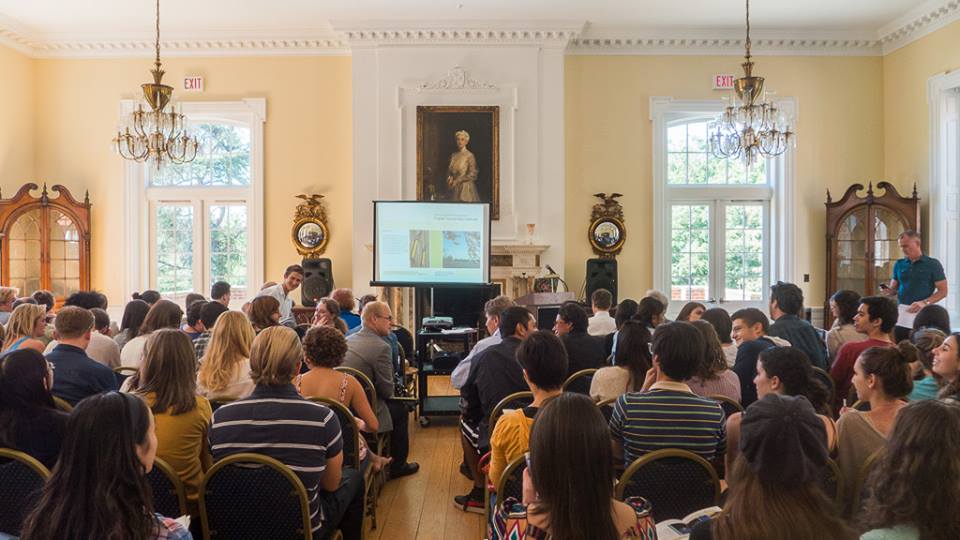
Co-founded by Alexa Alice Joubin and Jonathan Hsy, the GW Digital Humanities Institute was launched in 2013 through initial funding by the Office of the Provost, the Office of the Vice President for Research, and the Columbian College of Arts & Sciences. Administrative support is generously provided by the Department of English.
Due to the COVID-19 pandemic, all events are currently on hold. In Fall, 2021, we plan to offer a mix of in-person, virtual, and hybrid events. We remain a connecting place for local and virtual communities. Please stay tuned to our Facebook page for the latest news and live streaming or video recordings of our events.
PEOPLE
The Digital Humanities (DH) is a thriving intellectual community at George Washington University in downtown Washington, D.C.
Our Co-Directors:
Alexa Alice Joubin is Founding Co-Director of the Digital Humanities Institute and Professor of English, Women’s, Gender and Sexuality Studies, Theatre, East Asian Languages and Literatures, and International Affairs, and former Director of the Dean’s Scholars in Shakespeare Program. She is the founding co-editor of MIT Global Shakespeares, an open-access digital archive of performances of films.
Jonathan Hsy is Founding Co-Director of the Digital Humanities Institute and Associate Professor of English. He specializes in late-medieval literature and culture, and his research and teaching interests span the fields of translation studies and disability theory. He is the co-founder of the digital humanities project and online community Global Chaucers.
Administrative support is provided by the Department of English.
Our Webmaster:
Seth Blackburn is our IT assistant. He is an undergraduate intern through the program GW Coders who helped to revamp our website in 2021.
![Above: Graduate students with Patrick Murray-John (George Mason University) workshop on using Omeka for digital curation. Below: Undergrads, faculty, and librarians attending a DH lecture. [Photos: M Bychowski, Alexa Huang]](http://gwdhi.org/wp-content/uploads/2014/11/gw-community.png?w=625)
Faculty Affiliates:
The list of our faculty affiliates includes faculty and staff across many units of the university and a few local institutions (note: this information was current as of Spring 2015).
Ex Officio Board Members:
- Steven Lerman, Provost and Executive Vice President for Academic Affairs
- Leo Chalupa, Vice President for Research
- Paul Schiff Berman, Vice Provost for Online Education and Academic Innovation
- Stephen Ehrmann, Vice Provost for Teaching and Learning
- Geneva Henry, Vice Provost for Libraries
- Geralyn Schulz, Associate Dean for Research, Columbian College of Arts & Sciences
- Derek Malone-France, Executive Director of the University Writing Program
- Robert McRuer, Chair, English Department
Faculty and Librarians:
- Eric Arnesen, Professor of History
- Karim Boughida, Associate University Librarian for Digital Initiatives and Content Management (GW Libraries)
- Patricia Chu, Associate Professor of English
- Diane H. Cline, Associate Professor of History
- Kavita Daiya, Associate Professor of English
- Daniel DeWispelare, Associate Professor of English
- Holly Dugan, Associate Professor of English
- Joe Fruscione, Former Adjunct Professor of Writing, University Writing Program
- Shoko Hamano, Chair of East Asian Languages & Literatures, Professor of Japanese and International Affairs
- Eric Johnson, Director of Digital Access, Folger Shakespeare Library
- Kathryn Kleppinger, Assistant Professor of French & Francophone Studies
- Randi Kristensen, Deputy Director of Writing in the Disciplines, Assistant Professor of Writing
- Robert McRuer, Chair and Professor of English
- David T. Mitchell, Professor of English
- Rachel Riedner, Writing and Women’s Studies, Director of Writing in the Disciplines
- Dolsy Smith, Librarian for the Humanities (GW Libraries)
- Margaret Soltan, Associate Professor of English
- Laura Schiavo, Assistant Professor of Museum Studies
- Christopher Sten, Professor of English Emeritus
- Gayle Wald, Professor of English and of American Studies
- Sarah Werner, Digital Media Strategist, Folger Shakespeare Library
- Amelia Wong, Assistant Professor of Museum Studies
- Christine Zink, Director of the University Writing Center and Assistant Professor of Writing
Graduate Students and Alumni:
The GW English Digital Humanities Working Group was founded in 2013 and is co-organized by Lori Brister, recent PhD in English, and Maia Gil'Adi, current PhD candidate in English. Both have been regular contributors along with Tawnya Ravy. All three have been active in co-organizing DH Working Group events.
Others students active in the DH community at GW (in addition to current and former DH Grad Assistants) include Theodora Danylevich, Molly Lewis, Leigha McReynolds, Alan Montroso, William Quiterio, Emily Russell, and Haylie Swenson.
Digital Humanities Graduate Assistants:
The DH Graduate Assistants for Fall 2016 - Spring 2017 were M. W. Bychowski and Haylie Swenson.
M.W. Bychowski was a Ph.D Candidate working on transgender and disability in medieval literature. Her articles have been featured in Accessus and she has forthcoming chapters in the Companion to Medieval Disability Studies and Chaucerian Skin Matters, as well as articles in Postmedieval and the Medieval Feminist Forum. She maintains a website, Transliterature, a Center for the Study of Transgender and Disability.
Haylie Swenson was a PhD candidate completing a dissertation on how humans form relationships with dogs, horses, and rats in premodern and contemporary texts. She produced a podcast and served as the Director of Education for Studium, an arts and education nonprofit centered in Austin, TX.
The DH Graduate Assistant for Fall 2015 - Spring 2016 was Elizabeth Moser. She was a PhD student at George Washington University with interests in Twentieth-Century Literature, Asian-American Literature, Poetry and Trauma Studies. Her current projects include research on the transmission of trauma from first to second generation Asian-Americans and the value of teaching haiku in urban education.
The DH Graduate Assistant for Spring 2015 was Shyama Rajendran. She was a PhD candidate completing a dissertation on medieval literature and contemporary sociolinguistic theory. She cofounded The East Coast Medieval Graduate Alliance (TECMA), a group encouraging non-Anglocentric approaches to the Middle Ages.
The DH Graduate Assistant for Spring 2014-Fall 2014 was M.W. Bychowski. She was a PhD candidate of Medieval Literature and maintains a website on transgender and disability studies, Transliterature: Things Transform.
